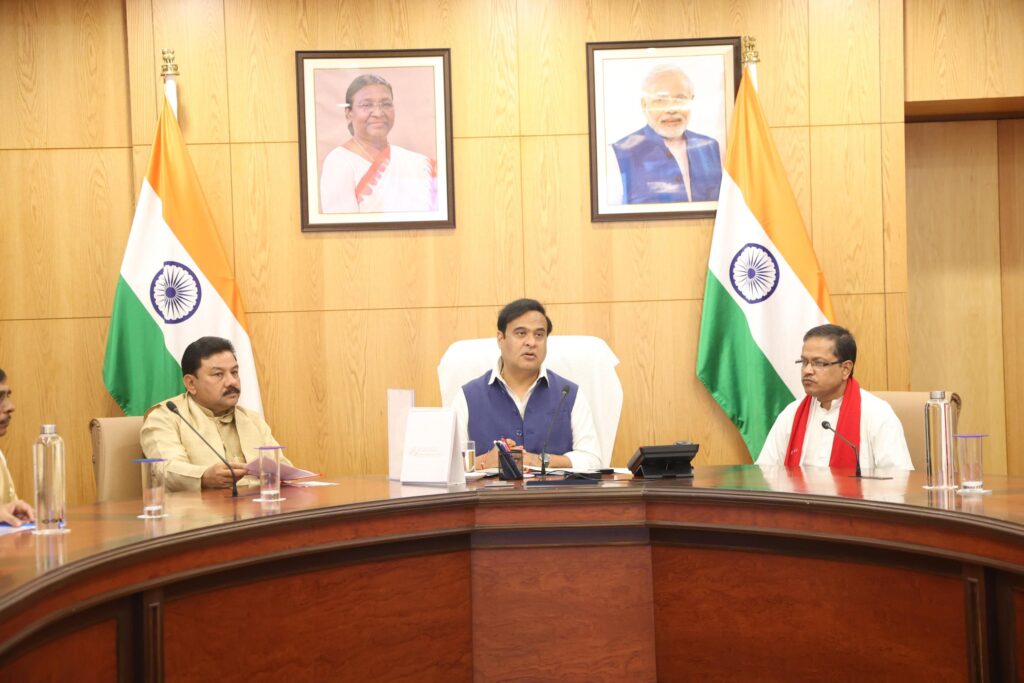
The Assam government has successfully saved over ₹33 crore in electricity bills in the last nine months, Chief Minister Himanta Biswa Sarma announced. This remarkable achievement was made possible through the implementation of efficient measures such as accurate billing, automatic disconnection for non-payment, individual metering, self-payment policies for ministers and officials, and the installation of smart meters in government offices.
Key Initiatives Behind the Savings
The state government’s proactive approach to reducing electricity costs involved several impactful measures:
- Accurate Billing:
The implementation of advanced systems to ensure accurate billing eliminated errors and discrepancies, reducing unnecessary expenses. - Smart Meters Installation:
Smart meters were installed across government offices, providing real-time data on electricity usage and promoting efficient consumption. - Automatic Disconnection:
An automatic disconnection system for non-payment was introduced, ensuring accountability and timely bill settlements. - Individual Metering:
Individual meters were assigned to government departments and offices, enabling better tracking and management of electricity consumption. - Self-Payment Policy:
Ministers and senior officers were required to pay their electricity bills personally, fostering a culture of responsibility and reducing misuse of resources.
Impact of the Savings
The ₹33 crore savings over nine months reflect the effectiveness of these measures and their broader implications:
- Fiscal Efficiency:
By cutting down unnecessary electricity expenses, the government has optimized its operational budget, freeing up resources for other developmental projects. - Environmental Benefits:
The focus on efficient electricity usage aligns with sustainability goals, reducing energy wastage and the state’s carbon footprint. - Accountability and Transparency:
The initiatives promote accountability among government offices and officials, ensuring a transparent approach to resource management.
Public Reaction and Praise
The announcement has garnered widespread appreciation from various quarters:
- Citizens: Many have applauded the government’s efforts to lead by example, demonstrating responsible electricity consumption and cost-cutting measures.
- Experts: Energy and policy analysts have highlighted Assam’s initiative as a model for other states, emphasizing the importance of adopting smart technologies and efficient billing systems.
- Political Leaders: CM Sarma’s focus on fiscal discipline and sustainable practices has been praised as a forward-thinking governance approach.
Challenges and Scope for Improvement
While the savings are commendable, further steps can enhance efficiency and expand the impact:
- Scaling Up Smart Meter Usage:
Extending the installation of smart meters to semi-government institutions and public sector offices could amplify savings. - Public Awareness Campaigns:
Educating citizens and businesses about the benefits of energy conservation could foster a culture of sustainable electricity use across the state. - Infrastructure Upgrades:
Investments in modernizing the power grid and introducing renewable energy sources can further reduce electricity costs and improve reliability. - Replication in Other Sectors:
Similar cost-saving measures can be adopted in other utilities and sectors to maximize fiscal efficiency.
A Model for Other States
Assam’s success in saving electricity costs serves as an inspiration for other states looking to optimize their budgets and embrace sustainable practices. By leveraging technology and fostering accountability, the Assam government has demonstrated how simple yet effective measures can yield significant results.
Conclusion
The Assam government’s initiative to save over ₹33 crore in electricity bills highlights the power of efficient management and innovative solutions. As the state continues to prioritize transparency, fiscal responsibility, and sustainability, these efforts not only benefit the government’s finances but also set a precedent for responsible resource management. The success of this initiative underscores the importance of proactive governance in achieving financial and environmental goals.








































Leave a Reply